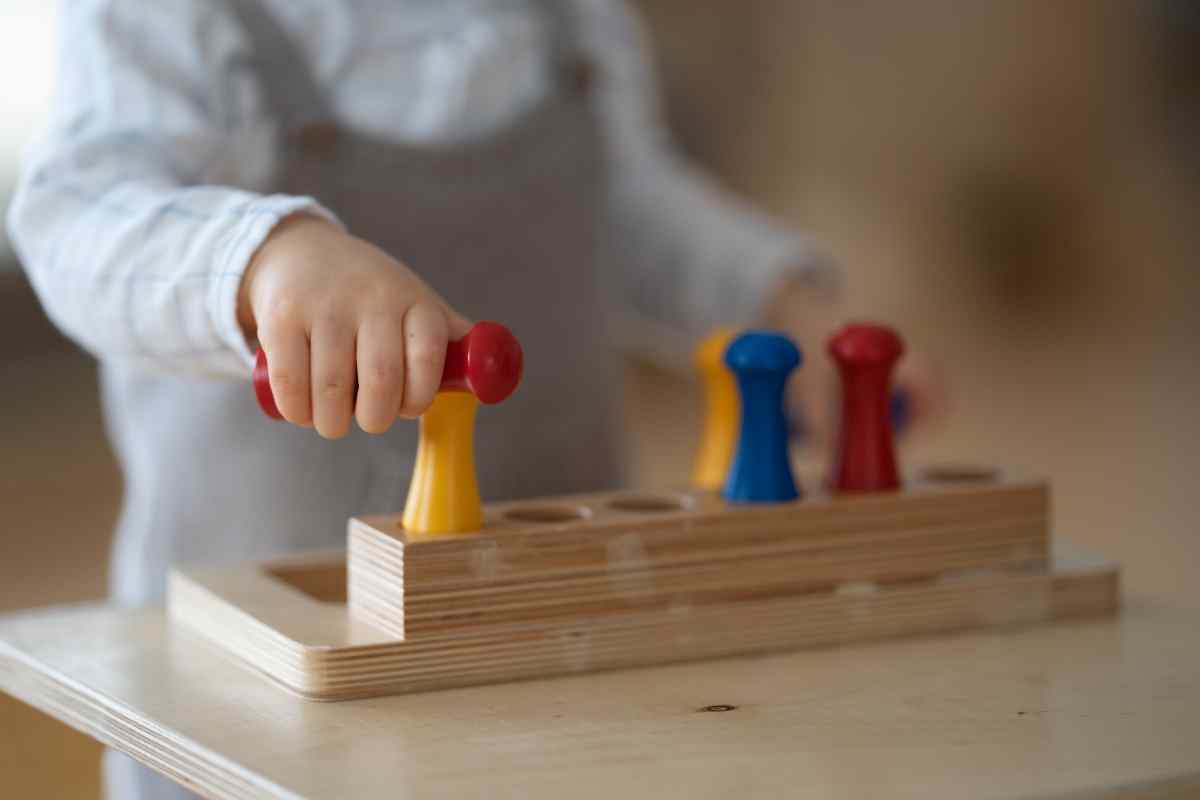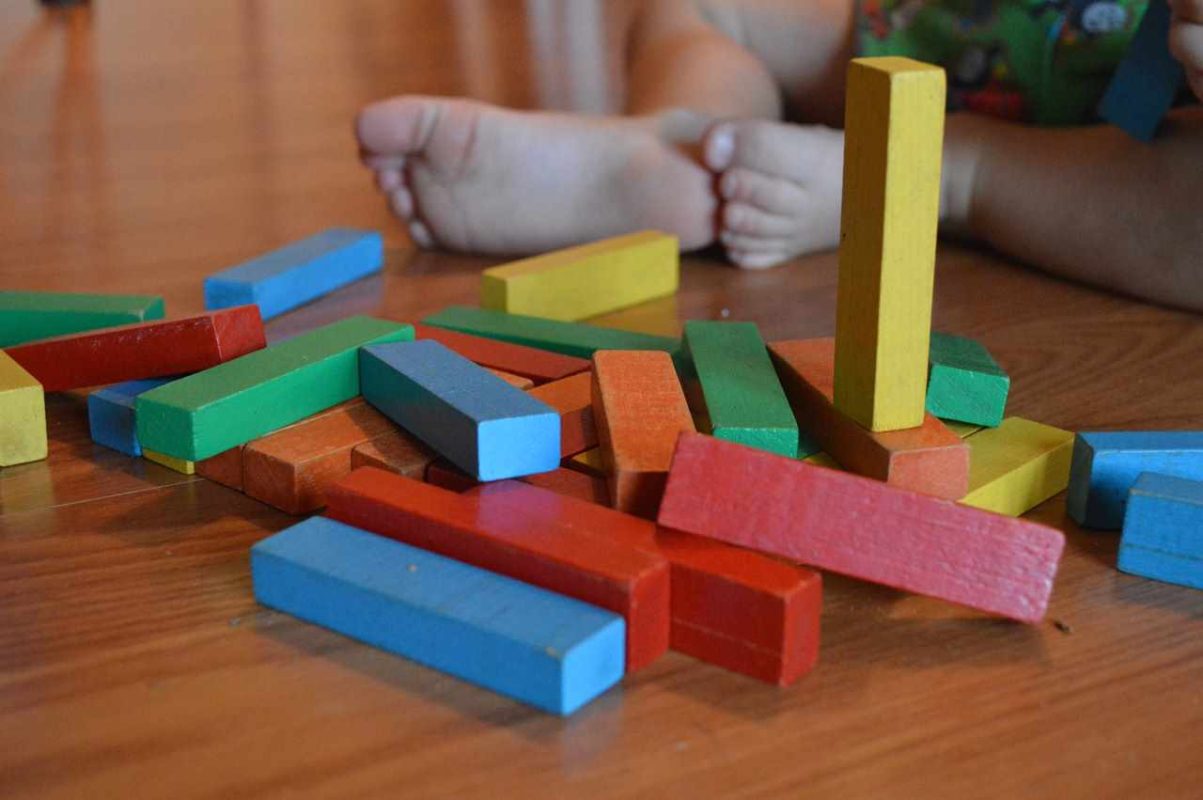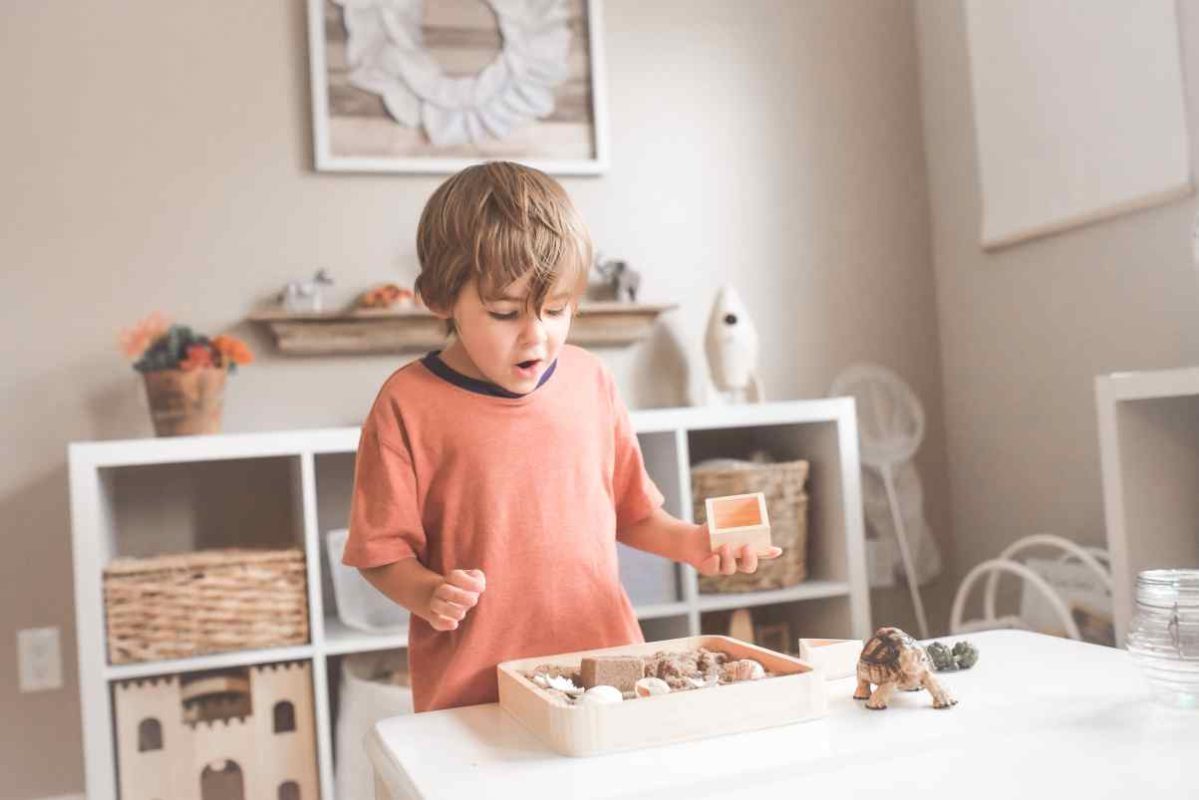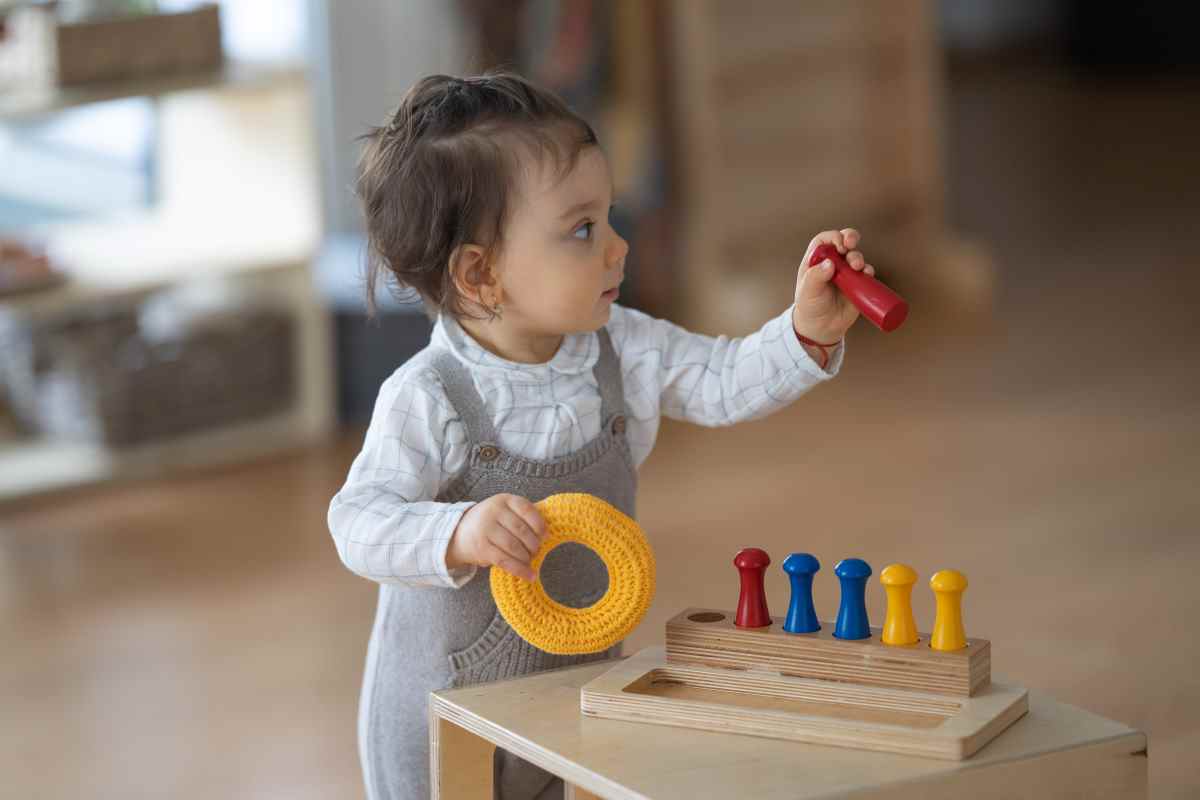Montessori education
Unlock Learning: Montessori Toys Guide for Educational Play
Table of Contents
I. Introduction
Montessori toys are designed to align with the educational philosophy and principles popularized by Maria Montessori, supporting self-directed learning through hands-on play and exploration. Montessori toys aim to foster cognitive, sensory, and motor development in children from infancy through the preschool years.
This comprehensive guide will examine the benefits of Montessori toys, provide age-specific recommendations, give tips for DIY projects, compare to traditional toys, suggest where to shop, and review top-rated options. With insight on aligning toys with Montessori principles and ensuring safe practices, parents can feel empowered to unlock their child’s learning potential through purposeful play.
A. Definition of Montessori Toys
Montessori toys are learning tools created according to the educational philosophy of Dr. Maria Montessori, which emphasizes hands-on sensory experience, self-directed play, and developing practical life skills from an early age. Rather than being playthings meant solely for amusement, Montessori toys deliver educational benefits.
Common features include:
- Made from natural, minimalist materials like wood, cloth, or beeswax
- Encourage sensory exploration and fine motor development
- Allow for open-ended play and imagination
- Help develop concentration, coordination, and problem-solving
- Promote independence and responsibility
- Enable mastery of practical life skills
Montessori toys range from simple wooden shapes and puzzle boards for infants to more complex learning materials for preschool-aged children.
B. Importance of Educational Play
Play provides the foundation for learning in early childhood development. Educational toys deliver cognitive stimulation and important opportunities to acquire essential skills.
Key benefits of educational play include:
- Language Development – talking while playing develops vocabulary and communication skills
- Cognitive Growth – play promotes focus, memory formation, and problem solving
- Motor Skill Development – puzzles, blocks, and manipulatives improve fine motor dexterity
- Social-Emotional Skills – cooperative play teaches sharing, listening, and relationship building
- Self-Regulation – play allows for practicing impulse control and self-discipline
The interactivity of quality educational toys engages a child’s whole mind and body in joyful, self-directed learning. Montessori toys are designed to maximize these developmental benefits.
C. Brief Overview of Montessori Principles
Italian physician and educator Dr. Maria Montessori pioneered a revolutionary method of early childhood education at the turn of the 20th century. Montessori schools operate in over 100 countries worldwide today.
Key tenets include:
- Child-centered, hands-on learning with minimal teacher interference
- Multi-age classrooms with 3-year age groupings
- Specially designed educational materials and activities
- Development of motor skills, senses, and problem solving from an early age
- Cultivation of independence, concentration, and intrinsic motivation
Montessori toys align with this philosophy of respecting the child’s interests and promoting active learning through play.

II. Benefits of Montessori Toys
The interactive nature of Montessori toys delivers immense benefits for cognitive, sensory, and motor development in early childhood.
A. Cognitive Development
Montessori toys are designed to stimulate mental processes and intelligence from infancy onward. Key cognitive benefits include:
1. Role in Enhancing Memory
- Shape sorting toys develop visual perception and memory retention
- Object matching activities reinforce ability to recognize identical objects
- Categorization toys like stacking cups promote conceptual thinking
2. Fostering Problem-Solving Skills
- Puzzles require analytical thinking to complete
- Open-ended toys with multiple uses encourages creative thinking
- Toys with sequences or processes teach logical thinking and step-by-step problem solving
B. Sensory Development
Montessori toys provide infants and toddlers with enriching multisensory experiences during key developmental windows.
1. Importance of Sensorial Experiences
- Textures, sounds, sights engage the developing senses
- Building neural connections for sensory perception and processing
- Fosters hand-eye coordination and visual tracking
2. Montessori Toys for Sensory Play
- Rattles, graspable teething toys for auditory, tactile input
- Black and white mobiles and pictures for visual contrast
- Sandpaper letters to integrate tactile feel with phonics
- Sound cylinders to develop auditory discrimination
C. Fine and Gross Motor Skills
Manipulating Montessori toys develops hand strength, dexterity, and whole-body coordination.
1. Wooden Toys for Motor Skill Development
- Wooden puzzles with large knobs – pincer grasp
- Threading beads or spools – hand-eye coordination
- Grasping and transferring wooden objects – fine motor control
2. Activities Promoting Coordination
- Pouring water or beans – wrist rotation and strength
- Hammering pegs – bilateral coordination
- Tracing shapes and letters – pre-writing skills
In all, Montessori toys deliver a wealth of cognitive, sensory, and physical benefits vital for early learning.
III. Montessori Toys for Different Age Groups
Maria Montessori recognized sensitive periods for learning in development. Montessori toys are tailored to deliver age-appropriate educational benefits.
A. Infants (0-1 year)
The senses are primed for stimulation in infants, making sensory-rich toys ideal.
1. Appropriate Toys for Sensory Stimulation
- Black and white cards with high contrast patterns
- Soft fabric books or crinkle toys
- Rattles and grasping toys
- Teethers and links for holding
2. Safe Materials for Babies
- Non-toxic, BPA/phthalate-free
- Large parts not removable by baby
- Easily cleaned by parents
B. Toddlers (1-3 years)
Toddlers are inquisitive explorers gaining independence, making interactive toys engaging.
1. Educational Toys for Early Learning
- Wooden shape sorters and puzzle boards
- Simple wooden puzzles with knobs
- Stacking cups or rings
- Board books for language development
2. Developing Basic Motor Skills
- Play food and kitchen tools
- Pegboards and large bead mazes
- Pull and push toys
- Balls for gross motor play
C. Preschoolers (3-6 years)
Active learners at this age benefit from toys that encourage creativity and challenge emerging capabilities.
1. Advanced Learning Toys
- Letter and number manipulatives
- Arts and crafts materials like playdough
- Nature items like shells or flowers for sorting
- Introductory science activities like magnifying glasses
2. Encouraging Independence and Creativity
- Child-sized cleaning tools
- Open-ended toys like blocks or miniatures
- Dress-up clothes and props
- Blank paper and art supplies
Open-ended, hands-on Montessori toys foster a sense of capability and imagination in preschoolers.

IV. DIY Montessori Projects
Parents can easily create Montessori-inspired toys at home to save money and customize learning.
A. Importance of DIY in Montessori Education
- Engages parent involvement in education
- Promotes resourcefulness and creativity
- Allows for customization based on child’s interests
- Provides inexpensive options to support learning
B. Simple DIY Projects for Parents
Hands-on DIY projects help cultivate Montessori principles using common household items.
1. Creating Sensory Bins
Fill bins with affordable materials in various textures. Ideas include:
- Dry pasta, beans, or rice
- Pompoms or cotton balls
- Sand or water
- Pinecones or seashells
Add scoops and spoons for transferring items to develop motor skills.
2. Making Educational Games at Home
Cut and laminate cardstock to create matching games, memory games, and three-part object picture cards. Print letter and number tracing pages for practice.
Simple, creative projects make learning engaging while saving money.
V. Montessori Toys vs. Traditional Toys
While any quality toys can aid development, Montessori toys excel at delivering specific educational benefits compared to mainstream toys.
A. Comparative Analysis
1. Educational Value
Montessori toys are designed for developmental learning vs. entertainment alone.
2. Impact on Child Development
Research shows Montessori toys improve academic achievement, executive function, and creativity.
B. Making Informed Choices for Parents
Focus on toys that serve a developmental purpose for optimal learning:
- Montessori toys for cognitive and motor skills
- Some mainstream toys encourage pretend play and language
- Limit overstimulating electronic toys
A thoughtful mix of Montessori and other appropriate toys makes the most of playtime.
VI. Where to Find Authentic Montessori Toys
Seek out quality materials aligned with Montessori principles from reputable retailers.
A. Trusted Online Retailers
Websites specializing in Montessori offer well-designed toys supporting self-directed learning. Recommended retailers:
1. Reviews and Recommendations
- Hodgepodge Montessori
- Michael Olaf
- Etsy shops like The Montessori Shop
Read product reviews and Montessori teacher recommendations when selecting toys.
2. Considerations When Purchasing
- Materials used – wood, cloth preferred over plastic
- Absence of distracting lights/sounds
- High-quality manufacturing for durability
- Company’s adherence to Montessori philosophy
With an abundance of choices online, carefully vet products to find ones that deliver authentic Montessori learning benefits.
VII. Montessori Toys and Educational Philosophy
For optimal benefit, ensure toys align with core aspects of Montessori pedagogy.
A. Aligning Toys with Montessori Principles
Select toys that:
- Foster child independence
- Allow for self-directed, unstructured play
- Feature minimalist, aesthetically pleasing designs
- Develop concentration and coordination
- Enable mastery of practical life skills
B. Creating a Montessori-Friendly Learning Environment
- Organize shelves with limited choices to avoid overstimulation
- Rotate toys to maintain novelty and interest
- Include child-sized furniture to enable independence
- Add floor pillows for cozy play spaces
- Display toys attractively on low, open shelves kids can access
Following Montessori principles both in toy choices and environmental design creates an enriching space for learning through play.
VIII. Ensuring Safety with Montessori Toys
While supporting open-ended play, Montessori toys must adhere to important safety standards.
A. Tips for Safe Play
Supervise children and consider developmental readiness when introducing toys:
1. Age-Appropriate Toys
- Avoid small parts under 3 years
- Monitor strings, cords, and ribbons for choking hazards
- Keep dangerous objects like pins out of reach
2. Quality and Materials
- Solid wood avoids risks of chipping or splintering
- Non-toxic finishes and paints
- Well-constructed, durable designs
Careful toy selection and active adult engagement prevents injuries during self-directed play.
IX. Reviews of Top Montessori Toys
With an array of options, parent reviews offer helpful insight on high-quality Montessori toys for educating through play.
A. Analyzing Customer Reviews
Patterns point to the below as top-rated Montessori toys across age groups:
1. Montessori Toy Brands
- Melissa & Doug – Sturdy wooden toys, puzzles, beads
- Hape – Eco-friendly wood toys with minimalist designs
- Feelings – Colorful wooden learning materials
- Tegu – Magnetic wooden blocks engage STEM thinking
2. User Experiences and Recommendations
- Promote extended concentration and independent play
- Appeal to child’s innate curiosity and sense of wonder
- Withstand wear of daily use over years
- Retain play value without batteries/electronics
- Aid development of cognitive, fine motor, and coordination skills
Thoughtfully designed Montessori toys deliver a lifetime of developmental benefits according to parents.
X. Conclusion
A. Recap of Montessori Toys’ Educational Benefits
This guide has explored how Montessori toys cultivate learning across developmental domains through hands-on play:
- Cognitive growth – memory, analytical thinking, problem solving
- Sensory development – visual, tactile, auditory stimulation
- Motor skills – dexterity, strength, coordination, control
- Independence, concentration, and intrinsic motivation
B. Encouragement for Parents to Embrace Montessori Principles
Research shows introducing Montessori early provides tools for lifelong learning and success. Thoughtfully chosen toys create enriching experiences.
C. Final Thoughts on the Impact of Montessori Toys on Child Development
Designed to align with a child’s sensitive periods for learning, high-quality Montessori toys deliver educational benefits unmatched by mainstream toys. Unlocking a young child’s potential begins by providing developmentally appropriate Montessori materials that make learning joyful during the magical early years.

FAQs
What are Montessori toys?
Montessori toys are educational toys designed based on the teaching philosophy of Dr. Maria Montessori. They promote hands-on learning, sensory exploration, fine motor skills, and independent problem-solving. Montessori toys are crafted from natural materials like wood rather than plastic.
How do Montessori toys benefit child development?
Montessori toys deliver cognitive, sensory, motor, and social-emotional benefits vital for development. Specific skills developed include focus, memory, analytical thinking, coordination, dexterity, imagination, and concentration.
Where can I buy authentic Montessori toys?
Look for reputable specialty retailers like Michael Olaf, Melissa & Doug, and small Etsy shops. Carefully vet toys to ensure they align with Montessori’s principles and are well-constructed from quality materials.
Are Montessori toys suitable for all age groups?
Yes, Montessori toys are tailored to different developmental stages from infancy through the elementary years. Infant toys focus on sensory stimulation while preschool materials teach advanced cognitive skills.
Can I make Montessori toys at home?
Certainly! Simple DIY toys like sensory bins, pegboards, tracing cards, and wooden puzzles allow parents to emulate Montessori tools affordably using household items. Get creative while following child safety guidelines.
Montessori toys engage children’s natural curiosity while delivering proven developmental benefits. Carefully selected toys create enriching play-based learning experiences from infancy onward.
References
https://montessorigeneration.com/blogs/montessori/montessori-toys-for-early-learning
https://mymontessorimoments.com/montessori-toys/
https://www.whitbyschool.org/passionforlearning/12-montessori-toys-to-help-your-child-learn-through-play
https://montessoritoddler.com/montessori-toys/
https://reachformontessori.com/montessori-toy/

